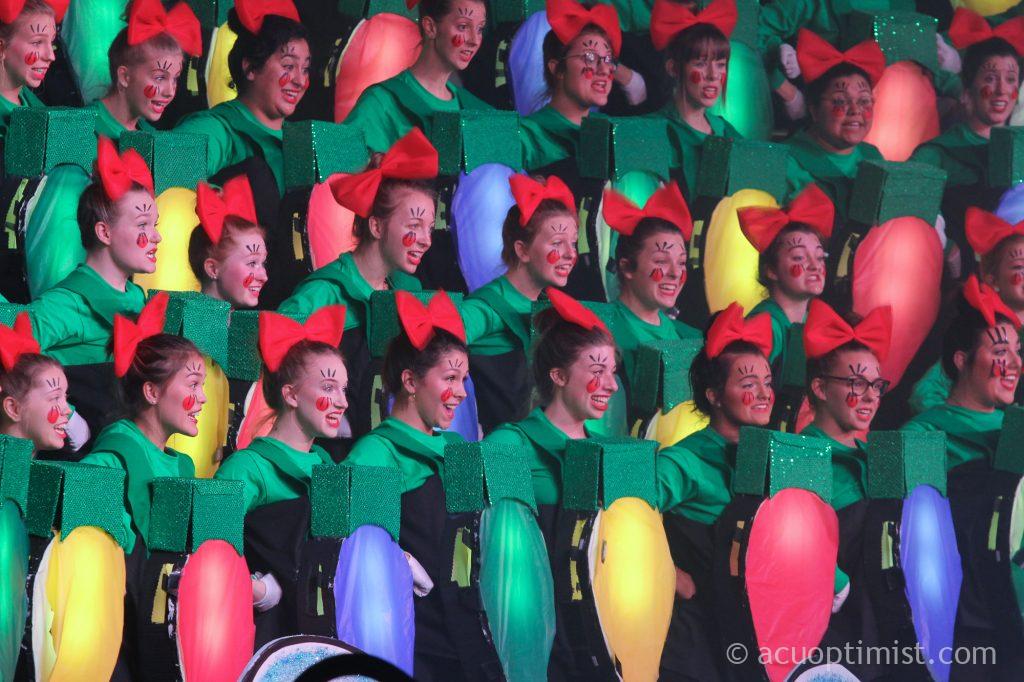I’m a Sing Song veteran. Seeing every show since 2008 has given it a very special place in my heart, and I think it’s one of the best parts of the student life experience that ACU has to offer.
Because the tradition is so special, thinking about what this year will look like hasn’t been very easy or very fun, especially now that I have a chance to be more involved in the production process.
I’ve been a part of a lot of conversations recently about what Sing Song will look like this year, but one thing I’ve heard has really stuck with me.
When representatives from the Office of Student Life presented the plan for this year’s Sing Song to students and act directors, they tried to convince us that restricting lyric changes, costumes and choreography would force students to be more creative.
I vehemently disagree with this statement, and anyone who has a history of being in Sing Song or watching archive videos should too. How can restricting the most creative aspects of the show make a more entertaining performance?
The Office of Student Life has not handled the distribution and implementation of this year’s plan for Sing Song well. Being encouraged to think of it like “Pitch Perfect” hasn’t exactly thrilled those of us who don’t participate in Sing Song because we love to sing.
Transitions within the student life leadership team have certainly made planning difficult for the show this year, but that doesn’t change the fact that Sing Song exists to give a collaborative performance experience to the majority of the student body and offer a creative outlet for student organizations.
The plan being offered this year accomplishes neither of those things because so many students are left out, and others don’t feel comfortable participating because they don’t want to be in a competition exclusively driven by vocal skill.
We may be the “Singing College” and we certainly have a talented student body, but most people don’t participate in acts to sing. Students love Sing Song because they get to work on a project with their friends and make audiences laugh. It’s more about being a part of the tradition and sharing experiences than it is about singing.
Personally, I think pitching the show as a return to the origins of Sing Song is an interesting idea, but the student body has changed since the show started, so we shouldn’t try to force older expectations onto Sing Song.
The Office of Student Life should not romanticize this year and ignore the flaws in the plan. Simply acknowledging and sympathizing with disgruntled students will go a long way. This year shouldn’t be about Sing Song being better than doing nothing at all. How can students get excited about something when all they are being told is they’re expected to participate because it’s better than being offered nothing?
Realistically, I know that nothing about Sing Song this year will change, no matter how much of the student body doesn’t like it. With that in mind, Student Life employees and leaders on campus should acknowledge the disappointments and frustrations many face and begin planning ways to avoid the same problems next year.


